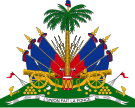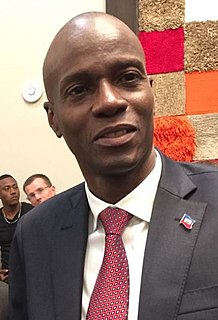
The recorded written history of Haiti began on 5 December 1492 when the European navigator Christopher Columbus happened upon a large island in the region of the western Atlantic Ocean that later came to be known as the Caribbean. It was inhabited by the Taíno, and Arawakan people, who variously called their island Ayiti, Bohio, or Kiskeya(Quisqueya). Columbus promptly claimed the island for the Spanish Crown, naming it La Isla Española, later Latinized to Hispaniola. French influence began in 1625, and French control of what was called Saint-Domingue—modern-day Haiti—began in 1660. From 1697 on, the western part of the island was French and the eastern part was Spanish. Haiti became one of the wealthiest of France's colonies, producing vast quantities of sugar and coffee and depended on a brutal slave system for the necessary labor. Inspired by the message of the French Revolution, Haitian slaves rose up in revolt in 1791 and after decades of struggle the independent republic of Haiti was officially proclaimed in 1804.

The government of Haiti is a semi-presidential republic, a multiparty system wherein the President of Haiti is head of state elected directly by popular elections. The Prime Minister acts as head of government and is appointed by the President, chosen from the majority party in the National Assembly. Executive power is exercised by the President and Prime Minister who together constitute the government. Legislative power is vested in both the government and the two chambers of the National Assembly of Haiti. The government is organized unitarily, thus the central government delegates powers to the departments without a constitutional need for consent. The current structure of Haiti's political system was set forth in the Constitution of March 29, 1987.

Jean-Claude Duvalier, nicknamed "Baby Doc", was the President of Haiti from 1971 until he was overthrown by a popular uprising in 1986. He succeeded his father François "Papa Doc" Duvalier as the ruler of Haiti after his death in 1971. After assuming power, he introduced cosmetic changes to his father's regime and delegated much authority to his advisors. Thousands of Haitians were killed or tortured, and hundreds of thousands fled the country during his presidency. He maintained a notoriously lavish lifestyle while poverty among his people remained the most widespread of any country in the Western Hemisphere.
Henri Namphy was a Haitian general and political figure who served as President of Haiti's interim ruling body, the National Council of Government, from February 7, 1986 to February 7, 1988. He served again as President of Haiti from June 20, 1988 until his deposition on September 17, 1988 in the September 1988 Haitian coup d'état.

The Constitution of Haiti was modeled after the constitutions of the United States and France. The document was approved by Parliament in March 2011 and came into effect on June 20, 2012.
Marc Louis Bazin was a World Bank official, former United Nations functionary and Haitian Minister of Finance and Economy under the dictatorship of Jean-Claude Duvalier. He was prime minister of Haiti appointed on June 4, 1992 by the military government that had seized power on September 30, 1991.

Pierre-Eustache Daniel Fignolé (1913–1986) was a Haitian politician who became Haiti's provisional head of state for three weeks in 1957. He was one of the most influential leaders in the pre-Duvalier era, a liberal labor organizer in Port-au-Prince so popular among urban workers that he could call upon them at a moment's notice to hold mass protests, known as "woulo konpresè"—Haitian Creole for "steamroller."

Michèle Bennett is the former First Lady of Haiti and the ex‑wife of former President of Haiti, Jean‑Claude Duvalier. They fled to France together when he resigned in 1986; they divorced in 1990.

A presidential referendum in Haiti was called in 30 April 1961 —jointly with the parliamentary election— to determine whether to let president François Duvalier remain in office for a further six years. The official count was 1,320,748 votes in favor of Duvalier and none against. The New York Times wrote about the referendum, "Latin America has witnessed many fraudulent elections throughout its history but none has been more outrageous than the one which has just taken place in Haiti."

General elections were held in Haiti on 22 September 1957. Former Minister of Labour François Duvalier won the presidential election running under the National Unity Party banner, defeating Louis Déjoie, as well as independent moderate Clement Jumelle, who had dropped out on election day in a cloud of suspicions that the army was monitoring the election in favour of Duvalier. Former head of state Daniel Fignolé, considered a champion of poor blacks, was considered ineligible as he had been forcibly exiled months before the election, allegedly kidnapped.

A constitutional referendum was held in Haiti on 22 July 1985. The amendments to the new constitution would restore multi-party politics, although only on the condition that all parties swore allegiance to President Jean-Claude Duvalier, as well as re-confirming Duvalier as President for Life and allowing him to single-handedly appoint the Prime Minister and his successor. The changes were reportedly approved by 99.98% of voters, although it was widely considered a sham and led to Duvalier being overthrown the following year.

A constititional referendum was held in Haiti on 30 January 1971. Before the referendum, the Haitian parliament had voted in favour of lowering the age limit for becoming president from 40 years to 20, as well as confirming Jean-Claude Duvalier, son of ailing Dictator François Duvalier as 21 years of age, which would allow him to succeed his father. The referendum asked Haitians the question:
Citizen Doctor François Duvalier. .. has chosen Citizen Jean-Claude Duvalier to succeed him to the Presidency for Life of the Republic. Does this choice answer your aspirations and your desires? Do you ratify it?
The Anti-Duvalier protest movement was a series of demonstrations in Haiti from 23 May 1984 – 7 February 1986, that led to the overthrow of President Jean-Claude Duvalier and the Duvalier dynasty regime.
Antoine Adrien (1922–2003) was a Roman Catholic Priest and liberation theology advocate who served as Father Superior of the Holy Ghost Order in Haiti. He also served as Director of the "Petit Séminaire Collège Saint-Martial," attended primarily by children of the country's elite. Adrien was expelled from Haiti in 1969 by the Francois Duvalier regime which accused the Holy Ghost Order of harboring communists working to overthrow the regime.

The Duvalier dynasty was an authoritarian family dictatorship in Haiti that lasted almost twenty-nine years, from 1957 until 1986, spanning the rule of the father and son pair François Duvalier and Jean-Claude Duvalier.

The period of 1859 to 1957 in Haitian history covers an era of political struggles, the period of American occupation and multiple coups and elections until the Duvalier dynasty seized control of the country in 1957.
The National Unity Party is a political party in Haiti. It was the de facto only political party in the country during the Duvalier dynasty, an authoritarian family dictatorship of François "Papa Doc" Duvalier and his son Jean-Claude "Baby Doc" Duvalier, which lasted from 1957 to 1986.

Parliamentary elections were held in Haiti on 14 June 1964, alongside a constitutional referendum. The National Unity Party of President François Duvalier was the sole legal party at the time, with all other parties having been banned the previous year.










